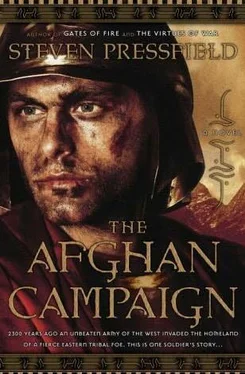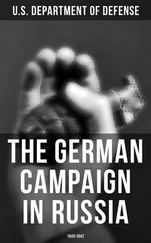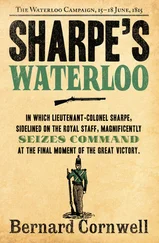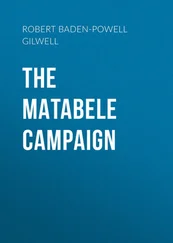Steven Pressfield - The Afgan Campaign
Здесь есть возможность читать онлайн «Steven Pressfield - The Afgan Campaign» весь текст электронной книги совершенно бесплатно (целиком полную версию без сокращений). В некоторых случаях можно слушать аудио, скачать через торрент в формате fb2 и присутствует краткое содержание. Жанр: Исторические приключения, на английском языке. Описание произведения, (предисловие) а так же отзывы посетителей доступны на портале библиотеки ЛибКат.
- Название:The Afgan Campaign
- Автор:
- Жанр:
- Год:неизвестен
- ISBN:нет данных
- Рейтинг книги:4 / 5. Голосов: 1
-
Избранное:Добавить в избранное
- Отзывы:
-
Ваша оценка:
- 80
- 1
- 2
- 3
- 4
- 5
The Afgan Campaign: краткое содержание, описание и аннотация
Предлагаем к чтению аннотацию, описание, краткое содержание или предисловие (зависит от того, что написал сам автор книги «The Afgan Campaign»). Если вы не нашли необходимую информацию о книге — напишите в комментариях, мы постараемся отыскать её.
The Afgan Campaign — читать онлайн бесплатно полную книгу (весь текст) целиком
Ниже представлен текст книги, разбитый по страницам. Система сохранения места последней прочитанной страницы, позволяет с удобством читать онлайн бесплатно книгу «The Afgan Campaign», без необходимости каждый раз заново искать на чём Вы остановились. Поставьте закладку, и сможете в любой момент перейти на страницу, на которой закончили чтение.
Интервал:
Закладка:
I have a fiancee at home. Her name is Danae. On the march I write letters to her in my head. I talk about money, not love. When we get married, Danae and I will need the equivalent of six years’ pay to make an offer on a farm, since neither of us wish to be beholden to our families. I will volunteer for Forward Operations, first chance I get. Double pay. I cannot tell Danae this. She will worry.
There are many things a fellow cannot tell his sweetheart. Women for one. An army travels accompanied by a second army of whores and trollops, not to mention the camp wives, who constitute a more permanent auxiliary, and when these melt away in “wolf country,” enemy territory, their numbers are made up by locals. We have heard much about the Asiatic’s sequestration of his women, and no doubt this is true in normal times. But when an army as laden with plunder as Alexander’s passes through, even the most hawkeyed patriarch can’t keep watch over his daughters forever. The maids dog the column, seeking novelty, freedom, romance, and even the lamest scuff can gin them down to nothing for a quick roll-me-over. The girls’ll even stay to mend kit and do the laundry. Half the young cooches are blinkered-with child, that is-made so by our fellows passing through with Alexander months before. This doesn’t stop us from stropping them. Not me of course, or Lucas. We hold true to our girls back home, much to the amusement of our comrades.
Tollo is the primary fig-hound. He’s sluicing the natives two at a time. “One on each hip,” he says, “just to keep warm.” Tollo’s Color Sergeant pay, counting bonuses, is four drachmas a day (four times my packet). You can buy a house for that here, or hire half a village to do any labor you want.
The army has its own language. “Steam” is soldiers’ slang for women. Dish. Fig. Cooch. Hank or bert (from the native tallabert, “mother”) for an Afghan. The locals have their slang for us too. Mack. Scuff. Bullah (from their word for “stupid”). Sex is qum-qum. The enemy himself our lads call “Baz,” the most common name for an Afghan male-as in, “Baz is out there tonight.”
Women are of two types in Areia and Afghanistan. Those beneath the protection of fathers and brothers are called tir bazal, “the jewel.” If you so much as glance at them, their people will slit your throat. The other type has lost the protection of the clan. Maybe their male kin have been killed in feuds or war, or the females have committed some transgression and been cast out. These are the girls we Macks take up with. They’re not tramps though. They have dignity. You have to marry them.
Marriage here is not like back home. One of my littermates, Philotas, met a girl in a village west of Susia. By night they were married. No ceremony; you just declare it and that’s it. My mates make fun of me because I take wedlock seriously. That’s how I feel. I can’t accept these riteless, walk-away hitch-ups. They seem wrong to me.
We get mail on the column. The post from home catches up every ten days; the troops even get letters from the army out east. This from my mother:
You need not write me chatty notes, dear, nor do I care to learn the progress of the latest campaign. Just let me know you are well. Stay alive, my child, and come home to me.
A letter comes from my brother Elias, ahead with Alexander’s corps in Afghanistan. It has no toll-seal. Mail from the fighting army travels free.
All letters report the same news:
Darius is dead.
The king of Persia has fallen, slain by his own generals as they flee before Alexander. In our column of replacements, we are cast down to hear this. The war will soon be over. We’ll pack home as broke as we started.
Elias sounds in fine fettle.
Matthias, you hound! How are you? Have you snagged your first Asiatic cooch? Welcome to the fighting army, you poor scuff!
He is well, my brother says, except for a wound he downplays. He is in hospital now, as I said, at Phrada near the Great Salt Desert; that’s how he has time to write.
The Persian war is drawing down, little brother. The enemy’s big augers all seek terms. It’s a capital show, these grandees coming in. They send their lieutenants first, under a flag, or their sons if they have them. Their mules are loaded with loot-“for Iskander.” That’s Persian for Alexander. We take them in like wayward kittens. Our orders are to treat them as if they were sugar and we must carry them home on our tongues.
Great generals and governors of the Persians, nobles who have fought our fellows across all Asia-Artabazus, Phrataphernes, Nabarzanes, Autophradates, as well as the slayers of Darius: Satibarzanes and his cohort Barsaentes-have bent the knee and been received with clemency by Alexander. Who else can run the empire for him? Even the mercenaries Glaucus and Patron, commanders of Darius’s crack heavy infantry, have come in with their commands and made their peace. They now form a unit of Alexander’s army.
Only one enemy remains wild. The Persian general Bessus, with 8,000 Afghan cavalry and access to 30,000 more-Scythian raiders from beyond the Jaxartes. He is calling himself Darius’s successor and raising an army to fight on.
Don’t worry, little brother. His own generals can read the wind. They’ll bring in his hat-with his head in it-soon enough.
In Areia, nearing the frontier of Afghanistan, we get our first chance outside of training to unsheathe our arms. Tollo and Flag are assigned, with half our company of mercenaries, to provide security for a train of supplies to be delivered to a village two days off the military highway. Lucas and I go along. Halfway out, in wild ravine country, a detachment of tribal riders shows itself on a ridge ahead. Tollo, Flag, and the mercs take off after them, leaving us rawbones with a few muleteers and natives to guard the train. Sure enough, as soon as our mates drop from sight, a party of thirty more bandits materializes. We are twelve, only four of us armed. The brigands are the most savage-looking villains we have ever seen. They have no fear of us whatever. They ride straight up to our goods and start helping themselves. We try to brass it out, shouting threats and brandishing our weapons. The foe brandishes back, with a good deal more credibility. Our natives have hotfooted it up the hill, clear of bowshot. Pretty soon we’re up there too. Lucas wants to attack; he says we’ll be court-martialed for cowardice if we don’t. “Are you crazy?” declares Rags. “These sand-trotters’ll murder us all.”
The bandits take everything. We feel like fools. Tollo and Flag return; without a word they mount a pursuit. When the raiders see our mob coming, they dump the loot and flee. We recover it all. “Don’t lose a wink over this,” Tollo reassures us afterward. “You did right. It was my fault for leaving you.”
But we are chastened. We have seen our wits go blank with terror and felt our limbs turn to stone from fear.
On the march, the army lays over every five days to rest the stock. At home these would be off-days, spent in recreation or refurbishing of kit. Not in Alexander’s army. Out east, we train.
We learn defense against cavalry. We learn hollow squares and moving screens; we learn how to feign a rush and how to recover. We even get to ride a little. For every primary mount, the grooms lead two remounts. These strings are the property of individual cavalrymen; in conventional warfare, the troopers would never let you near one. Not in this theater. Out here there’s no such thing as a led horse. We are recruited, those on the books as Mounted Infantry. In the event of action, should our primary cavalry be drawn off, we will form an auxiliary of remounts to shield the column.
On we trek. We practice cordon operations; encirclement of villages. Our companies rehearse on dummy sites across Armenia and Mesopotamian Syria, then on the real thing in the Kurdish mountains east of the Tigris. The force surrounds a farm hamlet in the dark, to be in assault position at first light. The job is carried out in strict silence. Its purpose is to let no villager escape. The formation for assault is open order, in three ranks. The same configuration is employed in pursuit of the foe. Its principle is the inverted swallowtail, in which an individual of the foe is passed through the points, attacked by the wings, and finished off by the backs.
Читать дальшеИнтервал:
Закладка:
Похожие книги на «The Afgan Campaign»
Представляем Вашему вниманию похожие книги на «The Afgan Campaign» списком для выбора. Мы отобрали схожую по названию и смыслу литературу в надежде предоставить читателям больше вариантов отыскать новые, интересные, ещё непрочитанные произведения.
Обсуждение, отзывы о книге «The Afgan Campaign» и просто собственные мнения читателей. Оставьте ваши комментарии, напишите, что Вы думаете о произведении, его смысле или главных героях. Укажите что конкретно понравилось, а что нет, и почему Вы так считаете.












